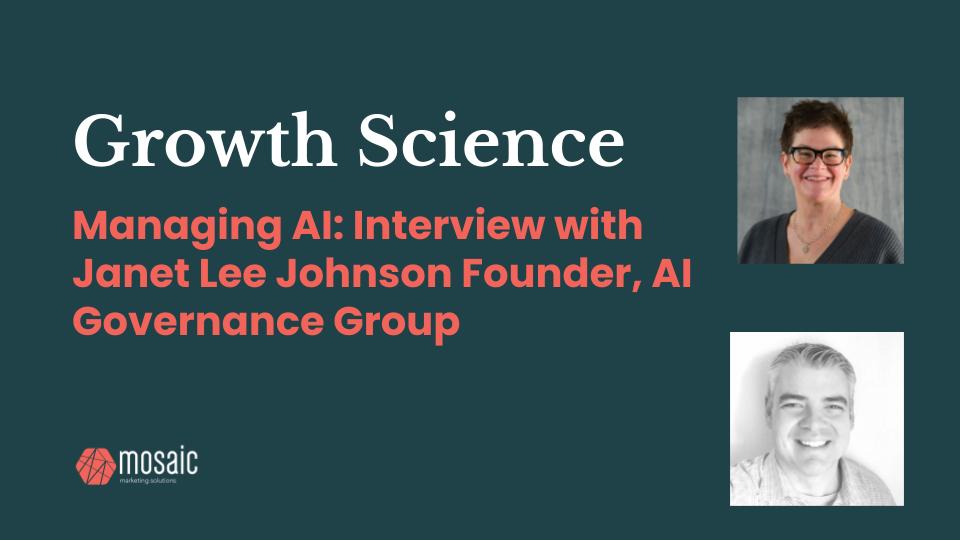Exploring the Future of AI with Janet Johnson: Insights and Implications
In an engaging conversation, Janet Johnson, a co-founder of the AI Governance Group, shares her extensive journey and insights into the evolving world of artificial intelligence (AI), highlighting its potential and the critical need for AI literacy. With a background that traces back to pioneering influencer marketing campaigns in 2003, Johnson’s experience offers a unique perspective on the digital transformation over the past two decades.
The Power of Conversations and the Shift to AI
Johnson reminisces about the early days of social media and content marketing, drawing parallels between the challenges and opportunities then and the emergence of AI today. She emphasizes the significant changes in trust, truth, and transparency brought about by technology and how these are becoming increasingly complex with AI’s rapid development. Johnson’s journey to forming the AI Governance Group was motivated by the realization of AI’s vast potential and the dangers it poses, particularly in eroding trust and truth.
AI Governance Group: Fostering AI Literacy
The AI Governance Group, comprising a diverse team of anthropologists, lawyers, and corporate underwriters, focuses on creating HR policies, educational opportunities, and strategies to protect intellectual property (IP) and improve AI literacy. Johnson stresses the importance of understanding AI’s capabilities and limitations, especially in the context of generative AI and large language models like ChatGPT.
The Implications of Voice Cloning and AI’s Rapid Advancements
A concerning aspect of AI for Johnson is voice cloning technology’s ability to replicate an individual’s voice with minimal input. This advancement, coupled with AI’s capacity to generate convincing content, poses significant risks for identity theft, deepfakes, and misinformation. Johnson advocates for a cautious yet optimistic approach to AI, emphasizing the need for governance and ethical considerations.
AI’s Role in Enhancing Creativity and Productivity
Johnson sees AI as a tool that can augment human capabilities, particularly in creative and strategic tasks. By automating mundane tasks, AI allows individuals to focus on areas where human empathy, creativity, and strategic thinking are irreplaceable. She predicts a shift in the job market, where soft skills like critical thinking and emotional intelligence become increasingly valuable.
The Importance of AI Policies and Education
Johnson calls for organizations to develop strategic AI policies that guide their use of AI technologies, ensuring they are used ethically and responsibly. She highlights the necessity of educating employees about AI’s potential and risks, particularly regarding data privacy and ownership.
Final Thoughts: Navigating AI’s Future
As the conversation wraps up, Johnson underscores the need for ongoing dialogue and collaboration among leaders, policymakers, and the public to navigate AI’s challenges and opportunities. She encourages a proactive approach to understanding and leveraging AI, suggesting that organizations and individuals alike should engage with AI technologies thoughtfully and ethically.
In summary, Janet Johnson’s insights offer a valuable roadmap for navigating the complex landscape of AI. Her emphasis on governance, literacy, and ethical considerations serves as a reminder of the dual-edged nature of technological advancement: while AI holds tremendous potential for positive transformation, it also necessitates careful management to mitigate its risks.


Recent Comments